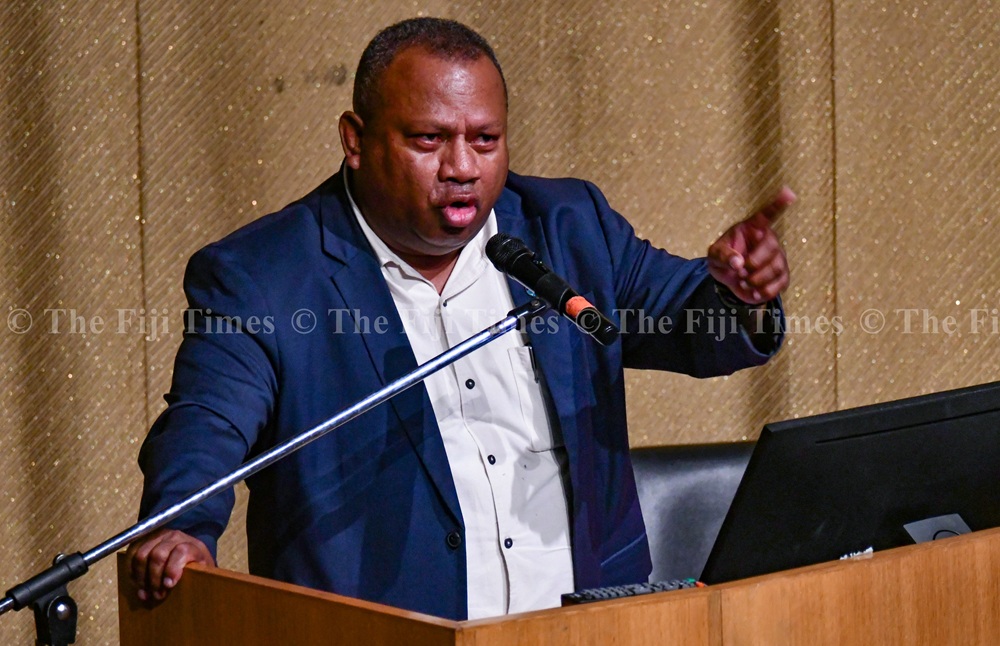Opposition Leader Inia Seruiratu says implementing the Paris Agreement is one of Fiji’s most pressing challenges.
Speaking during the National Climate Action Dialogue at The University of the South Pacific in Suva on Wednesday, he said the key test was balancing national interests with global climate commitments.
He reminded the audience of the three pillars of sustainable development: economic, social and environmental; and said economic concerns too often overpowered the others.
“Money is not the answer to everything,” he said.
He said this struggle was especially acute for developing countries such as Fiji, where the quest for financial gain frequently undermines environmental stewardship.
“The logging that we’re doing, the wild harvest that we are doing with our bêche-de-mer and everything. The unnecessary burning and all these causes a lot of problems with our environment, because we are after the money.”
On sustainable development, he said, meant meeting the needs and aspirations of today without compromising the future. Yet, he observed with concern, “Because of money, we are compromising the future.”
“Please, let’s look after our environment.”
Mr Seruiratu stressed equity in global climate efforts and cited article 2.2 of the Paris Agreement, which he says speaks to common but differentiated responsibilities. He said development partners, including some economic powers, relied on this clause and that this nuance added complexity to negotiations and highlights economic pressures on leaders.
“And if I may, just read out article 2.2 because it will make a lot of sense.
“The agreement will be implemented to reflect equity and the principle of common but differentiated responsibilities and respective capabilities in the light of different national circumstances.
“If you go to climate negotiations, our development partners, some of them are economic powers, but because of clause 2.2 of the article of the Paris Agreement, they will always fall back on this, because they are also a developing country in most aspects as well.
“But the big challenge, I think, in terms of the implementation, is the economy. That is the challenge that our leaders also face.”
He urged leaders to look beyond immediate financial gains.
“What will we leave behind for our children? They are our future. We are often acting as if there will be no tomorrow. Let’s change that.”



